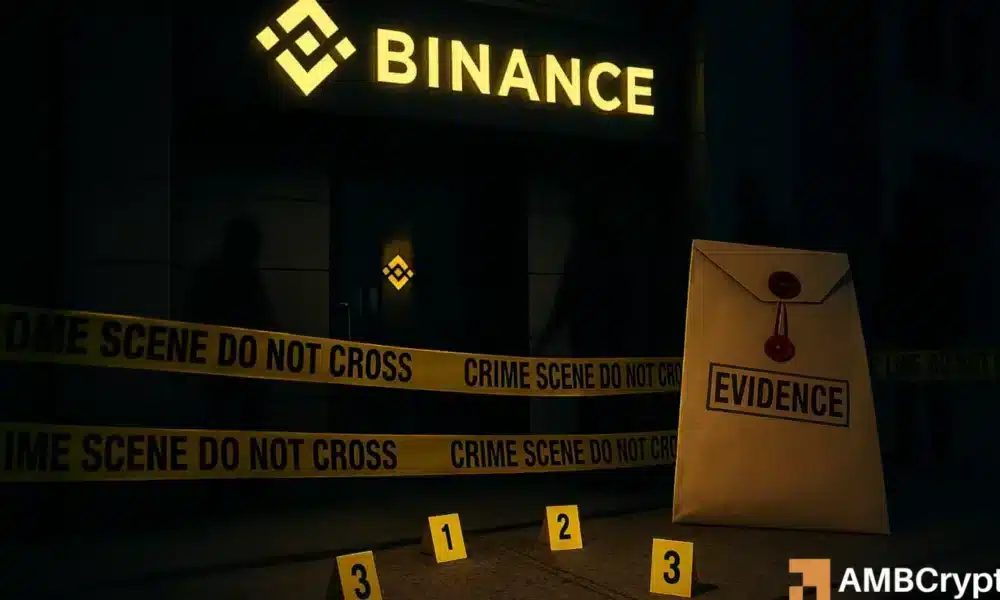Binance Lawsuit: A Deep Dive into Controversies and Allegations
In recent weeks, Binance has found itself at the center of a significant legal storm, drawing attention from around the globe due to a lawsuit filed by victims and their families in the aftermath of the tragic Hamas attacks on October 7, 2023. The lawsuit, lodged in federal court in Fargo, North Dakota, has 306 claimants alleging that the world’s largest cryptocurrency exchange, along with its founder Changpeng Zhao (often referred to as CZ), played a pivotal role in facilitating financial networks that support terrorism. This article explores the implications of the lawsuit, the evidence presented, and the potential consequences for Binance and the wider cryptocurrency landscape.
Allegations of Facilitating Terrorism Financing
The lawsuit alleges that Binance enabled over $1 billion to flow to various terrorist organizations, including Hamas, Hezbollah, and other groups implicated in the attacks. The families of the victims argue that Binance and senior executive Guangying “Heina” Chen knowingly facilitated these transactions, hence acting as a conduit for funds that supported murder, kidnappings, and rocket attacks. The filing, which spans 300 pages, details accounts allegedly linked to militants, including those belonging to the son of a senior Hezbollah commander and accounts tied to Hamas-linked money exchanges in Gaza.
Evidence: From Cryptocurrency to Gold Smuggling
The lawsuit underscores a complex web of allegations involving Binance, including connections to Hezbollah funds, gold-smuggling routes, and cryptocurrency transfers that allegedly originate from criminal groups in Venezuela and Brazil. Legal representatives representing the victims argue that Binance is built on an infrastructure that was, in effect, a "global money-laundering engine." One such account allegedly moved over $40 million through its network, raising substantial questions about the oversight and regulatory measures in place at the exchange.
Legal Opinions on Accountability
The case has garnered attention not just for its serious allegations but also for its implications for corporate governance and accountability in the cryptocurrency sector. Legal experts emphasize that if a company prioritizes profit over essential compliance measures intended to prevent terrorism financing, it must face justice. Jonathan Missner, Managing Partner of Stein Mitchell Beato & Missner LLP, highlighted that the families of the victims deserve justice and that this case shines a light on the responsibilities that firms like Binance must uphold. Similarly, Lee Wolosky, a former official in the Bill Clinton and George W. Bush administrations, remarked on the severity of the misconduct claimed in the suit, suggesting a lack of basic counter-terrorism obligations within Binance’s operations.
Binance’s Previous Legal Troubles and Its Impact
This lawsuit emerges hot on the heels of Binance’s previous legal issues, including a Department of Justice (DOJ) settlement earlier in 2023. During that settlement, Binance admitted to failures in preventing money laundering, ultimately resulting in over $4 billion in fines and short prison sentences for some executives, including CZ. The current lawsuit asserts that the misconduct detailed far exceeds what was previously revealed in the DOJ settlement, prompting the question of whether Binance has genuinely rectified its operational failures or if systemic issues still persevere.
The Political Dimension: CZ and Presidential Pardon
In an intriguing twist to this legal saga, the timing of the lawsuit coincides with former President Donald Trump’s extraordinary decision to pardon Changpeng Zhao, effectively erasing his prior conviction. This pardon has opened the doors for Binance’s possible re-entry into U.S. markets—something Zhao described as surprising. The political dimension raises discussions on the intersection of law, cryptocurrency, and governance, especially considering how such pardons can influence public perception and regulatory action against companies engaged in controversial practices.
Conclusion: What Lies Ahead for Binance?
As the lawsuit unfolds, it could set a critical precedent for how cryptocurrency exchanges are regulated and held accountable for their roles in financial networks that may support terrorism. Stakeholders in the cryptocurrency community are keenly observing the developments, recognizing that the outcome could have far-reaching implications on operational transparency, regulatory compliance, and overall trust in digital currency platforms. With growing scrutiny from both legal and regulatory bodies, Binance faces a challenging journey ahead, one that may redefine not only its operational practices but also the broader landscape of the cryptocurrency industry.


